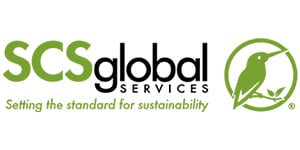As the new year rapidly approaches, it’s time to start thinking about compliance. Many rulings were passed last year and more will continue to come into effect which means there is a lot for an HR department to monitor. To help you navigate, we’ve compiled a quick list of HR compliance subjects your department should be aware of as we head into 2018:
Overview of 2017 Rulings Taking Effect in 2018
2017 brought quite a few rulings HR managers across the country will be dealing with in 2018. Depending on your state, there could be major shifts in everything from minimum wage to what’s legal to ask in an interview. We summarized some here:
State Law Overtime Rules:
- Minimum salary level required for large California employers (26 or more employees) will be $880 per week as of January 1, 2018, compared to the federal FLSA minimum of $455 per week.
- Requires employee to be “primarily” engaged in exempt work (more than 50% of the time).
- Minimum salary level required for large New York employers (11 or more employees) will be $975 per week as of December 31, 2017.
Minimum Wage State Laws:
- Many states and the District of Columbia have set their own minimum wages higher than the federal rate. This is something to look out for in 2018 in the state in which your organization operates. You can check your current state minimum wage rates here.
- Also, be on the lookout for a federal increase in the minimum wage in 2018 since we haven’t seen an increase since 2009.
Get the answers you’re looking for when it comes to staying compliant in HR for 2018! @ClearCompany
Salary History Ban:
- On October 12, 2017, California became the latest jurisdiction to pass legislation that prohibits employers from asking job applicants for “salary history information,” which includes both compensation and benefits. The CA law applies to all employers both public and private, taking effect January 1, 2018.
- Other states and municipalities that have implemented similar laws include Delaware, Puerto Rico, Oregon, Massachusetts, New York City, and Philadelphia.
Ban the Box Laws:
- These types of laws have been sweeping the nation and have been passed in about 23 different states and municipalities.
- Ban the Box Laws prohibit employers from inquiring about prior criminal convictions until a later point in the hiring process. Find out if there are Ban the Box Laws you need to know to stay compliant in your area here.
New Administration Effects
As our country continues to see the effects of the new administration, there are some appointments and decisions coming down the pipeline specifically important for employers to look out for in 2018. These include:
- Department of Labor Wage and Hour Division (DOL): 14 positions still require Senate confirmation
- National Labor Relations Board (NLRB): This board has two new appointees. There are a handful of controversial NLRB decisions in the works.
- Equal Employment Opportunity Commission (EEOC): The EEOC has two new nominees to be approved.
The federal government has also had an impact on numerous priorities in the workplace such as immigration issues, decreased federal employment regulations, and the future of required healthcare benefits provided by employers. These are issues employers should pay special attention to in years to come as they will likely influence compliance regulations.
Staying Compliant in 2018 and Beyond
If your organization operates in multiple states, it may be tricky to create a policy that meets different laws that have been passed in multiple locations. Try to be cognizant of policies that might not be applicable to an overarching policy. Rather, specify guidelines and terms of employment for each state. This tactic will make it easier for your HR department to keep track of whether or not they are staying compliant with each specific ruling.
How will the new administration affect HR compliance in 2018? Find out from @ClearCompany:Employers should always keep a close eye on the reaction of the states to the administration’s federal employment law decisions. States have the ability to enact individual regulations to further federal changes or create a more specific rule. To ensure you stay compliant, conduct a review of the background check process and employment applications in conjunction with the latest rulings.
HR compliance rulings will always be changing, and it can be difficult to keep up. Here are just a few resources to keep bookmarked in order to stay up to date with the latest news:
- Federal Statutes, Regulations, and Guidance
- Compliance Resources
- Department of Labor
- National Labor Relations Board
Getting ready for the end of the year can be overwhelming for everyone, especially in the HR department. Keep your team on track with our year-end checklist to help you close out 2017 easily!


.png)



